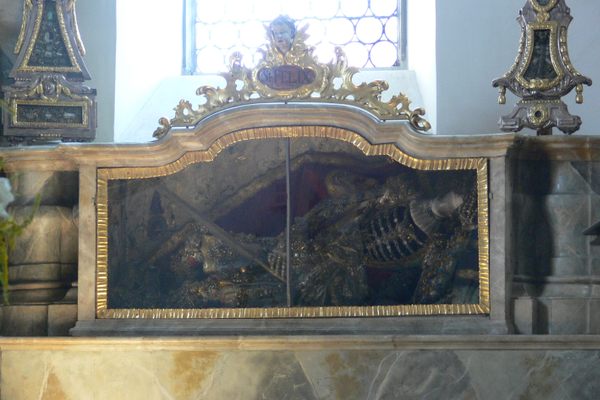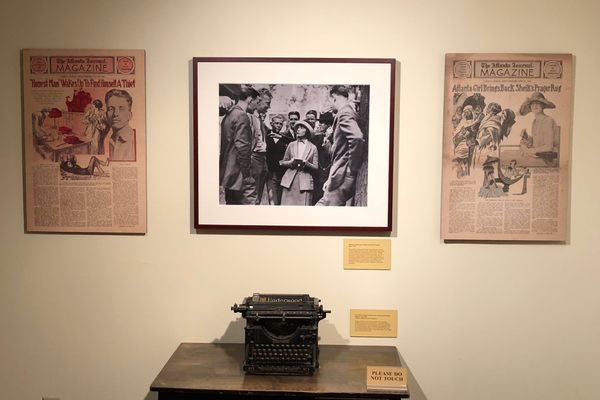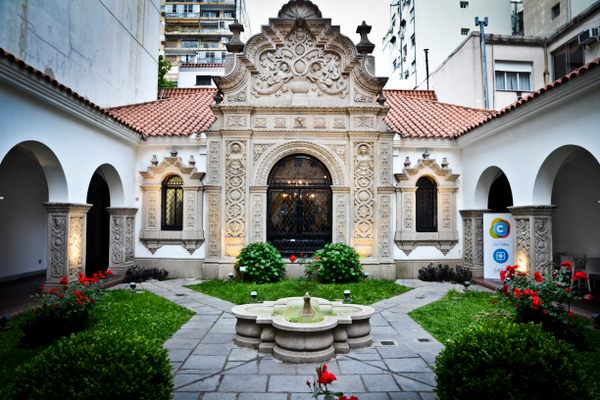AO Edited
Jünger-Haus Wilflingen
The former home of Ernst Jünger, an eccentric German novelist, philosopher, entomologist, and psychonaut.
In the sleepy village of Wilflingen, in southern Germany, stands the house of Ernst Jünger, an eccentric and controversial best-selling German novelist. A pioneer of sci-fi and magical realism, Jünger was a rebel, a philosopher, a decorated WWI veteran, an entomologist, a psychonaut, and a centenarian.
After fighting in the First World War, Jünger studied biology and wrote his most famous work In Stahlgewittern (Storm of Steel), which chronicled his personal experience of the war and went on to become an international bestseller. The book was controversial in its writing style—it avoided moralizing about the war and instead focused on the inner and subjective experience.
“These moments of nocturnal prowling leave an indelible impression. Eyes and ears are tensed to the maximum, the rustling approach of strange feet in the tall grass is an unutterably menacing thing. Your breath comes in shallow bursts; you have to force yourself to stifle any panting or wheezing. There is a little mechanical click as the safety-catch of your pistol is taken off; the sound cuts straight through your nerves. Your teeth are grinding on the fuse-pin of the hand-grenade. The encounter will be short and murderous. You tremble with two contradictory impulses: the heightened awareness of the huntsmen, and the terror of the quarry. You are a world to yourself, saturated with the appalling aura of the savage landscape.”
In the Weimer Republic period, Jünger flirted with both elements of the far-left and far-right but ultimately committed to neither ideology and focused instead on writing (often in a proto-magical realist style), art, and biology—specifically entomology, the study of insects. Hitler and the Nazis tried to court Jünger on numerous occasions but he was disgusted by their philosophy and repeatedly rejected them.
During the Second World War, Jünger was reluctantly conscripted as a captain in the army and posted to occupied Paris, where he befriended artists and intellectuals such as Pablo Picasso and Jean Cocteau, and glamorous socialites such as Marie-Louise Bousquet and Florence Gould.
Jünger’s noted disdain for the Nazis, ill-concealed criticisms of their ideology, and friendship with Claus Von Stauffenberg made him the inspiration for the attempt that would come closest to assassinating Hitler at the Wolf’s Lair on July 20, 1944.
In the aftermath of the failed assassination, Jünger immediately came under the suspicion of the Gestapo and Goebbels, who wished to arrest and execute the writer. The request was ultimately refused by Hitler, and Jünger was instead dismissed from the army.
After the war, Jünger continued to write. He produced works of fiction such as the science-fiction novel Gläserne Bienen (The Glass Bees) and of non-fiction such as Der Waldgang (The Forest Passage), which explored themes such as the dangers of artificial intelligence and the need for individuals to resist totalitarianism.
He also traveled extensively through South America, Asia, and Africa and befriended the chemist Albert Hoffman (the inventor of LSD), which led to him experimenting heavily with psychedelic drugs such as LSD, psilocybin, MDMA, and mescaline. Jünger wrote extensively about these experiences, and coined the term “psychonaut.”
The Jünger-Haus Wilflingen was the author’s last home (originally given to his close friend Claus Von Stauffenberg), where he lived for almost half a century before passing away in 1998 at the grand age of 102. The estate that Jünger left behind from a long and fascinating life included countless personal possessions and numerous historic artifacts, letters, and manuscripts, as well as an enormous library that contains approximately 9,000 books and a diverse natural history and entomological collection.
In 1999 it was decided by the local district and a literature foundation that the house should become an archive for scholars and historians and a museum for interested members of the visiting public which it remains today.
Know Before You Go
The Jünger-Haus Wilflingen museum is open for visitors from Wednesday to Friday 9 a.m. - 12 p.m, Thursday and Friday 2 p.m. - 4 p.m and on Sundays from 1.30 p.m. - 4.30 p.m.
The entrance fee costs € 6.00 per person and includes a guided tour.



























Follow us on Twitter to get the latest on the world's hidden wonders.
Like us on Facebook to get the latest on the world's hidden wonders.
Follow us on Twitter Like us on Facebook